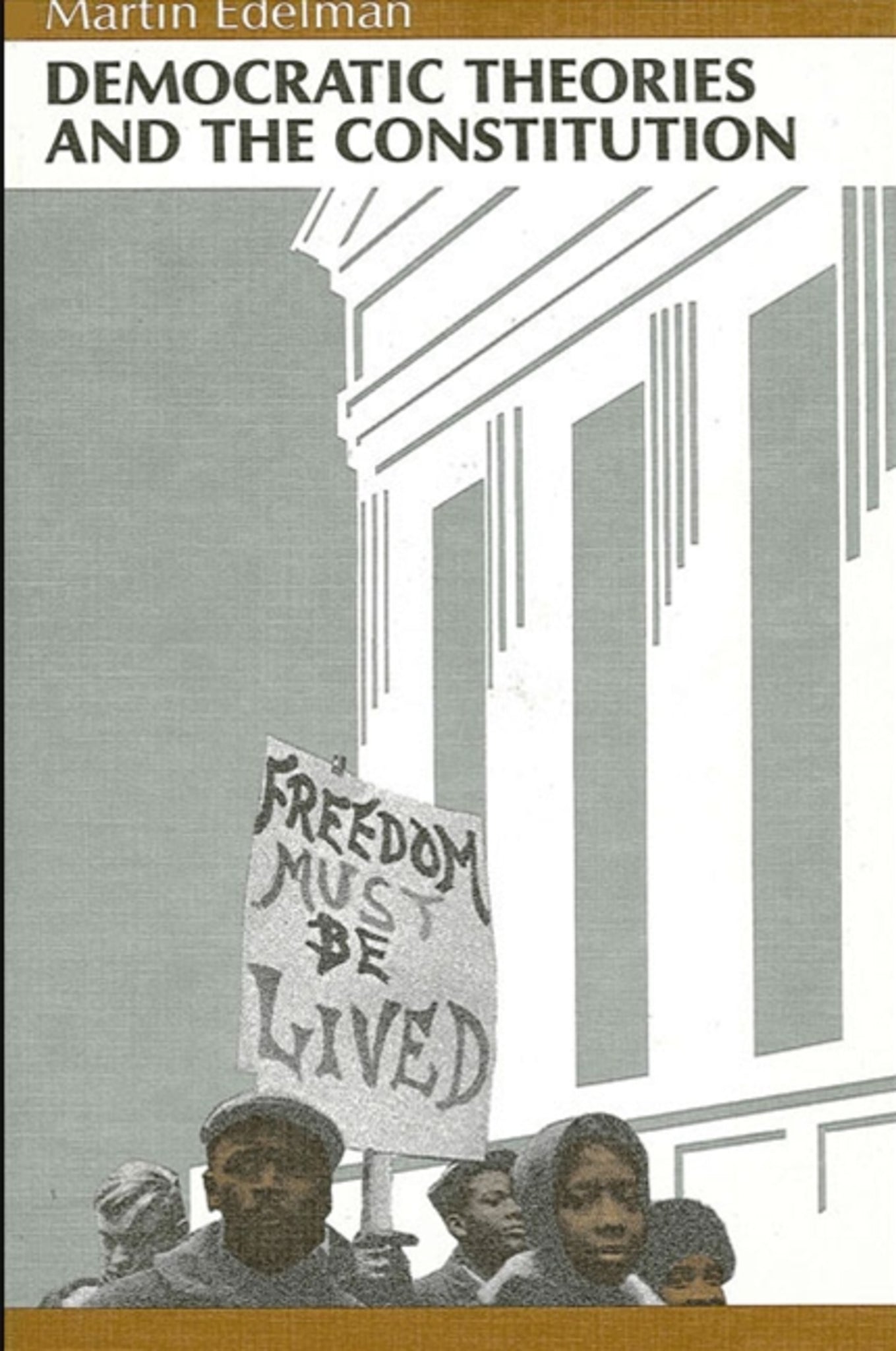We're sorry. An error has occurred
Please cancel or retry.
Democratic Theories and the Constitution

Some error occured while loading the Quick View. Please close the Quick View and try reloading the page.
Couldn't load pickup availability
- Format:
-
30 June 1985

Although the government of the United States is traditionally viewed as a democracy, there is considerable disagreement about what democracy means and implies. In a comprehensive study Professor Edelman examines the three democratic paradigms most prevalent in America today: natural rights, contract, and competition. Theories based on these paradigms lead to different ideas of democracy, each of which yields variant interpretations of the Constitution. This close relationship between democratic theories and constitutional interpretations is analyzed in an extensive historical introduction, which focuses on some of the major thinkers in American history.
Edelman's discussion shows that neither the Constitution nor the development of American political thought can serve as an authoritative basis for any one theory of democracy. Instead of a particular theory, the historical constant was an appeal to reason inherent in our basic charter. In his methodological section, Edelman argues that we must use reason to clarify the latent values inherent in the differing concepts of democracy and the consequences that flow from them. He analyzes judicial ideas in the light of three concepts deemed central to any democratic theory-citizenship, political participation, and political freedom-and concludes with a balanced account of contemporary democratic theories, the constitutional theories related to them, and a critique of both.


Preface
Introduction
I Historical Background
1 The Republican Constitution
The Democratic Theory of the Anti-Federalists
The Republican Theory of the Framers
The Constitution as Fundamental Law
2 The Constitution Construed and Democratic Theories Vindicated
The Democratic Theory of Jefferson
The Republican Theory of Marshall
The Decline of Republican Theory: The Whigs (Webster and Lincoln) as Democrats
3 Constitutional Exegesis Old and New
The Cooley-Field Theory of Democracy
Populists and Progressives
Brandeis as a Progressive
4 The Challenge to Tradition
John Dewey's Instrumentalism
The Detachment of Justice Holmes
The New Deal and the Supreme Court
II Contemporary Theories of Democracy: The Competitive Theories
5 The Competitive Paradigm for Democracy
Schumpeter's Competitive Paradigm
The Weakness of the Traditional Paradigm
The Virtues of the Competitive Paradigm
6 Realist Theory
Realist Theory and the Competitive Paradigm
Realist Theorists
Social Scientists: Key, Dahl, MacIver and Lipset
Political Theorist: Hook
Supreme Court Justices: Frankfurter and Harlan
An Analysis of Realist Theory
Citizenship
Political Participation
Political Freedom
Conclusions
7 Optimalist Theory
Optimalist Theory and the Competitive Paradigm
Optimalist Theorists
Social Scientists—Schattschneider and Burns
Political Theorist—Thorson
Supreme Court Justices and the Preferred Freedoms Doctrine
An Analysis of Optimalist Theory
Citizenship
Political Participation
Political Freedom
Conclusions
III Contemporary Theories of Democracy: Natural Rights Theory
8 Liberal Natural Rights Theory
Justice Douglas and the Grand Design of the Constitution
An Analysis of Liberal Natural Rights Theory
Citizenship
Political Participation
Political Freedom
Conclusions
IV Contemporary Theories of Democracy: The Contract Theories
9 The Functional Contract
Meiklejohn and Tussman
Justice Brennan
An Analysis of the Functional Contract Theory
Citizenship
Political Participation
Political Freedom
Conclusions
10 The Individualistic Contract
Justice Black
An Analysis of the Individualistic Contract Theory
Citizenship
Political Participation
Political Freedom
Conclusions
V Conclusion
11 The Utility of Reason
Contemporary Theories and the Constitution
The Role of Reason
Suggestions for Constitutional Interpretation
Citizenship
Political Participation
Political Freedom
Notes
Bibliography
BOOKS
ARTICLES
Table of Cases
Index



